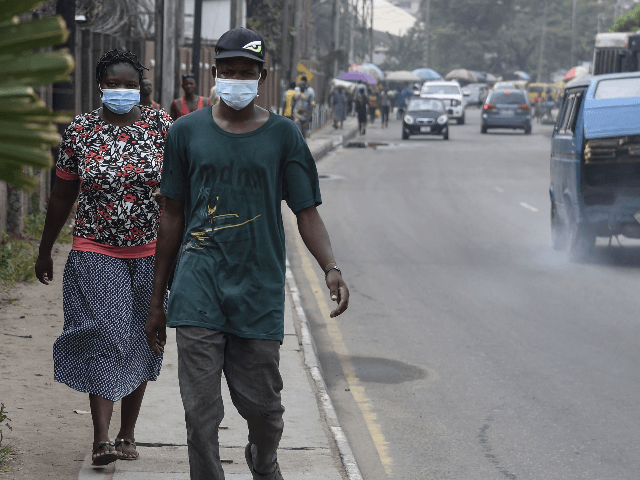Health authorities in Nigeria confirmed the country’s first case of the deadly coronavirus disease on Friday, meaning the virus has now spread to the most populous country on the African continent.
In a joint statement, the Nigeria Center for Disease Control (NCDC) and Minister of Health Osagie Ehanire confirmed the case in Lagos State, Nigeria’s economic capital and home to 20 million people, just under ten percent of the country’s total population.
“The case, which was confirmed on the 27th of February, 2020, is the first case to be reported in Nigeria since the beginning of the outbreak in China in January 2020,” the statement read. “The patient is clinically stable and is being managed at the Infectious Disease Hospital, Yaba.”
“We assure all Nigerians that measures are in place to respond appropriately,” they continued. “We are working with the Lagos Ministry of Health to identify contacts and initiate response accordingly.”
The commissioner for health in Lagos, Professor Akin Abayomi, revealed that the patient is an Italian citizen who came to Nigeria on business.
“We have immediately activated the State Emergency Operations Centre to respond to this case and implement firm control measures,” he said. “I wish to assure all Lagosians and Nigerians that we have been strengthening our preparedness since the first confirmation of cases in China. We will use all the resources made available by the state and the federal government to respond to this case.”
Abayomi goes on to recommend people follow a series of preventative measures, including regular hand washing, keeping a distance from those sneezing or coughing, and staying indoors should they feel unwell.
The confirmation of a case in Nigeria is the latest in a rapidly rising number of cases worldwide. Nigeria was among the majority of African governments to impose strict screening at all points of entry such as airports and land borders, although such measures are proving to be insufficient.
There is particular concern among health experts about the potential impact of a spread across Africa, where many of the countries including Nigeria have healthcare systems woefully unequipped to handle such an outbreak.
“Our greatest concern is the potential for the virus to spread to countries with weaker health systems, and which are ill-prepared to deal with it,” said World Health Organization chief Dr. Tedros Adhanom Ghebreyesus this month.
The virus was first identified in the Chinese city of Wuhan, Hubei province, which has a population of 11 million people. It has since spread to at least 46 countries around the world, killing 3,000 people and infecting more than 80,000, the majority of whom live on the Chinese mainland.
As well as the suffering and loss of human life, the virus is also causing major uncertainty for upcoming events around the world, as many sporting events and summits have already been canceled in a bid to avoid contagion. Last weekend, Tedros warned that time to stop the spread of the coronavirus is running out.
“We are actually in a very delicate situation in which the outbreak can go in any direction based on how we handle it,” he said. “This is not a time for fear. This is a time for taking action to prevent infection and save lives now.”
Follow Ben Kew on Facebook, Twitter at @ben_kew, or email him at bkew@breitbart.com.

COMMENTS
Please let us know if you're having issues with commenting.